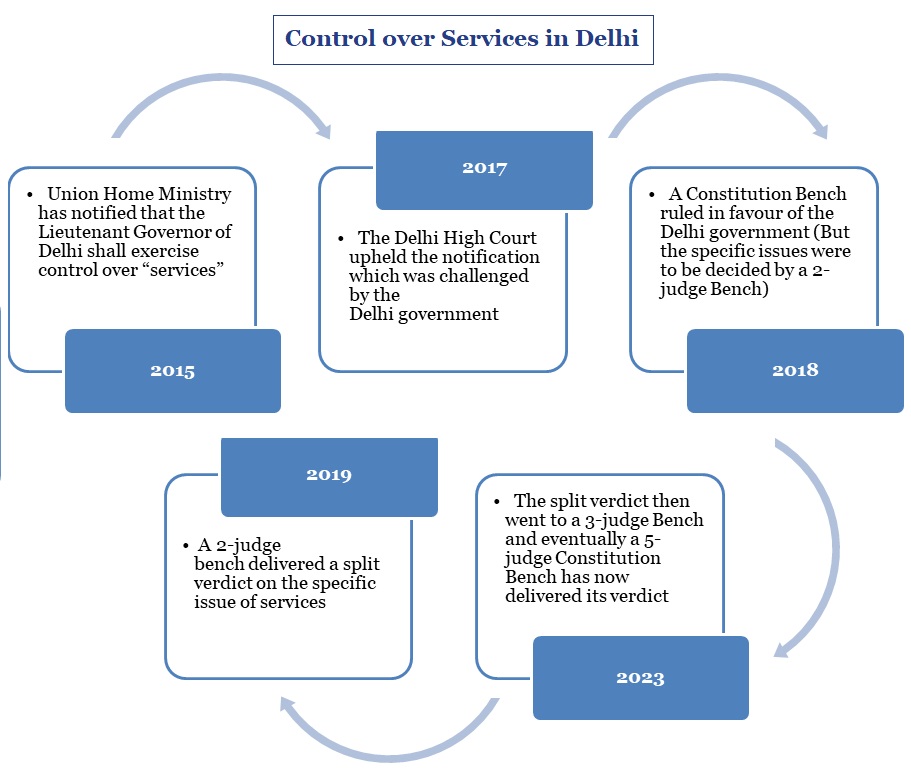7667766266
enquiry@shankarias.in
Why in news?
The Supreme Court has ruled unanimously in favour of Delhi government on the issue of who controls the bureaucracy in the national capital.
Article 243AA conferred special status upon Delhi based on the recommendations of S Balakrishnan Committee (1987) that was set up to look into Delhi’s demands for statehood.
|
Articles |
Provisions |
|
Article 239AA (1) |
|
|
Article 239AA (2) |
|
|
Article 239AA (3) |
|
|
Article 239AA (4) |
|
|
Article 239AA (5) |
|
Article 145(3) deals with the setting up of a Constitution Bench comprising at least 5 judges for deciding any case involving a substantial question of law as to the interpretation of the Constitution.

References